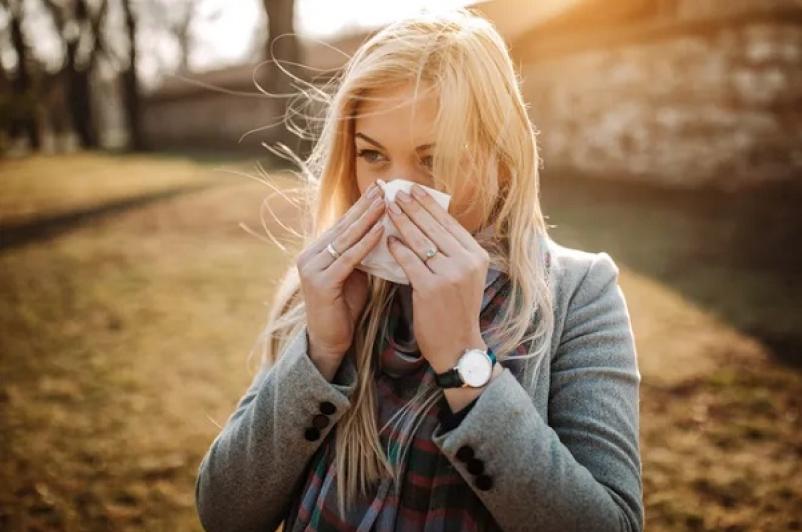

Is it an allergy, or a cold?
March 27, 2023
With the calendar informing us that spring is officially here, you may be wondering if those upper-respiratory symptoms you’re experiencing are an allergy, a cold, or something else. It’s not always easy to tell, so it’s important to familiarize yourself with the basics and bring your primary care provider or specialist into the picture when needed.
Since both the common cold and allergies can flare up during certain times of year, display similar symptoms and linger year-round, it can be hard to know what’s happening when the sniffling starts, explain clinical experts at UHS. Americans suffer from one billion colds a year, and, when it comes to allergies, as many as 30 percent of adults and 40 percent of children have them.
Here are a few tips to help you get a handle on what’s going on:
- Allergies follow a pattern, and symptoms tend to stick around longer than those of a cold. Your symptoms will flare at those times of the year when the allergens you’re sensitive to are present. For example, if you have a tree pollen allergy, symptoms will hit in the early spring.
- Allergies don’t cause fevers. You can have an allergy flare-up at the same time you have a fever from an infection, but the allergy isn’t the cause. For instance, allergies are considered a risk factor for sinus infections. With a cold, your temperature can run warmer, but typically will be lower than 100 degrees Fahrenheit.
- If it’s a wet cough, it’s probably not an allergy. While coughing is often a symptom of both allergies and colds, the cough you get with a cold is usually wet and hacking and will typically produce phlegm. An allergy cough feels more like a tickle in your throat, with mucus dripping down the back of your throat (post-nasal drip).
- If you have itchy eyes, ears, nose or throat, that usually signals an allergy. An allergy can affect the lining of your eyes, leading to dry eyes.
- Allergies rarely cause a sore throat or body aches. You may get a headache with an allergy, but if you’ve got a sore throat and mild body aches, it’s more likely you have a cold.
Keep in mind that we’re still living with the lingering effects of the COVID-19 pandemic, which means everyone needs to stay alert to signs, symptoms and changes in medical conditions. COVID can appear at the same time as an allergy, a cold or the flu. Before assuming that you’re just experiencing a head cold or a seasonal allergy, it’s a good idea to consult with your provider to rule out the flu, RSV or the coronavirus.
Also, you can start by taking an at-home COVID antigen test, particularly if your symptoms are more like those of a cold or the flu and don’t show up at a time when you typically experience allergies. And remember, if you ever experience difficulty breathing, call 911 or go to an Emergency Department immediately.
To do your best to avoid colds and the flu, practice good handwashing habits, avoid others who have a cold or infection, avoid situations that make your symptoms worse and make sure you get the right kind of nutrition, exercise and sleep. Allergies are not fun, and neither is the common cold. But by staying alert, talking with your provider and living as healthy a lifestyle as possible, you can cope not only in the springtime, but all through the year.
For more information on UHS Primary Care services or to find a new provider, click here.

